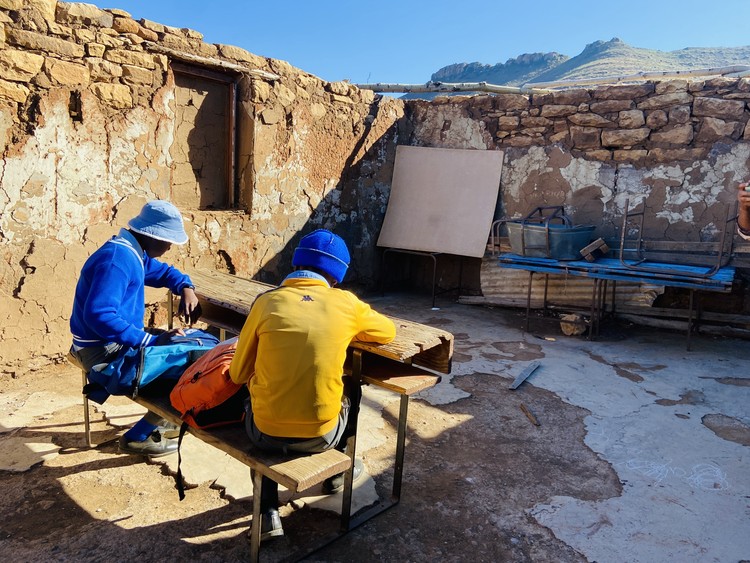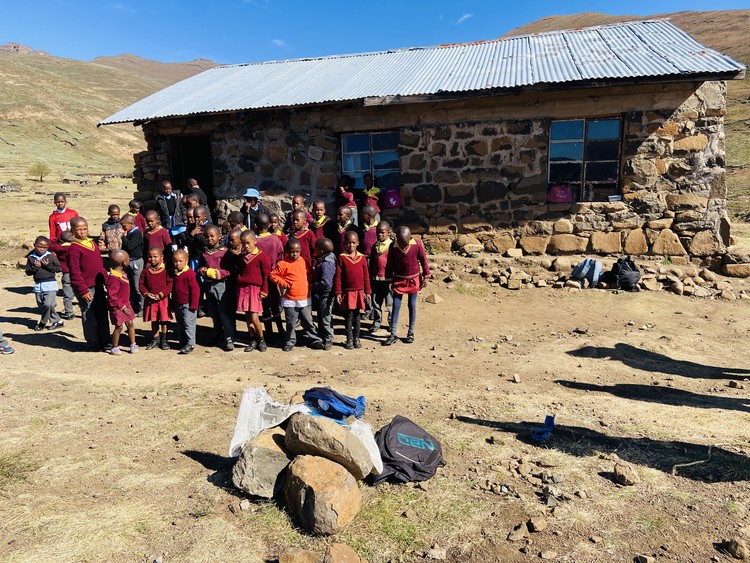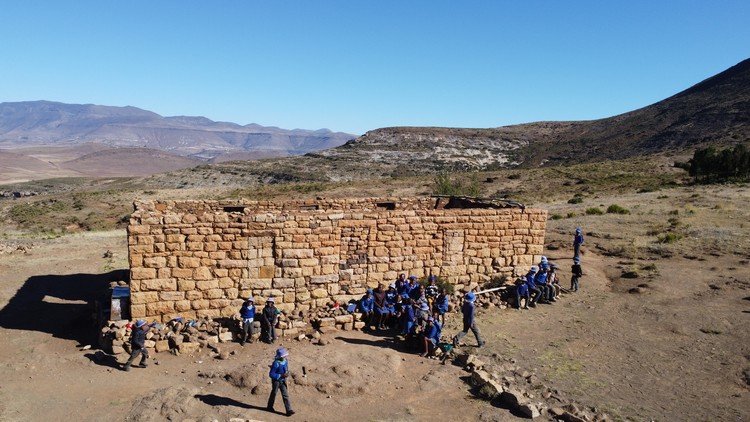US aid cuts leave rural Lesotho schools searching for alternative funding
Across Lesotho, many children are still learning in church halls and outside, says education official
Khama-khamane Primary School students learn in an unroofed structure in the Lesotho Highlands. Photos: Sechaba Mokhethi
- US aid cuts have left schools in Lesotho Highlands looking for alternative funding to fund their infrastructure.
- Children learn in church halls and outdoors, compromising their education.
- At Sephalane Primary five grades are squeezed into one dilapidated hall.
- The Ministry of Education has promised to complete unfinished structures but has given no timeline for when work will resume.
US aid cuts have been bad news for schools in the remote highlands of Lesotho. Learners take classes under the open skies. Lessons have to be shortened and classes cancelled during bad weather.
In 2014, seven schools received grants for classrooms, pit latrines, libraries and school furniture from the US Embassy through the Ambassador’s Special Self-Help Fund. The aim was to help address overcrowding and replace unsatisfactory learning spaces, such as dilapidated church halls, some without even roofs.
Last year in January, the US government called for a fresh batch of project proposals, with US$70,000 available to fund eight recipients.
Schools were at various stages of construction when President Donald Trump’s administration cut US aid earlier this year.
“Your award … is being terminated for the convenience of the US Government pursuant to a directive from Secretary of State Marco Rubio, in line with Agency priorities and national interest,” reads a letter to one school.
Sephalane Primary principal Mamatsoso Mokhachane said all their school’s five grades hold classes in a dilapidated church hall, with each grade facing a different direction.
Construction had already begun using the US funds and the school was on the verge of roofing the new classrooms.
“Just as we were preparing to request the final tranche of the M172,000 (R172,000) grant to pay workers and purchase remaining materials, the funding was terminated,” according to Mokhachane.
Sephelane has appealed to the public to help raise funds to complete the classrooms.
Mpho Maphasa, deputy chairperson of the Sehlabathebe Lehae Laka Association, which applied for the US grant on Sephelane’s behalf, described the chaos of teaching in the church hall: “Imagine different grades of teachers shouting at once in the same room.”
Association secretary Bolelane Elerk said a member donated M14,000 (R14,000) to complete the roofing.
“We still need to divide the space into two classrooms, plaster the walls, lay the floor, and install doors,” said Elerk.
Tankiso Phori of Vision Research Consultants Social Innovations, which partnered with Ifo Lapeng Women’s Movement to support rural schools, said that of the three schools they were helping to develop, only Lisoloane Primary School in Leribe completed construction before US aid was terminated. Two schools, Qoloane Primary in Mohale’s Hoek and Khama-Khamane in Leribe remain unfinished.
Mohale’s Hoek district education manager Maposholi Posholi told GroundUp: “Across Lesotho, many children are still learning in church halls and outside.”
Principal secretary for the Ministry of Education Ratšiu Majara told GroundUp that he was still waiting for details of the remaining scope of work at the affected schools before a formal commitment could be made by the government.
“But suffice to say that the ministry will ensure successful completion of the structures, even though I may not give specific timelines for reasons just outlined.”
Previously, the US Embassy has told us that questions on aid cuts can only be answered by the US foreign affairs administration in Washington.
Sephelane Primary School students in front of the dilapidated church hall where five grades are taught simultaneously.
Khama-khamane Primary School church hall lost it roof in a storm in 2023.
Support independent journalism
Donate using Payfast

Don't miss out on the latest news
We respect your privacy, and promise we won't spam you.
Next: Women, evicted from farms, march for housing
Previous: People with HIV go hungry as Gauteng government cuts funds
© 2025 GroundUp. This article is licensed under a Creative Commons Attribution-NoDerivatives 4.0 International License.
You may republish this article, so long as you credit the authors and GroundUp, and do not change the text. Please include a link back to the original article.
We put an invisible pixel in the article so that we can count traffic to republishers. All analytics tools are solely on our servers. We do not give our logs to any third party. Logs are deleted after two weeks. We do not use any IP address identifying information except to count regional traffic. We are solely interested in counting hits, not tracking users. If you republish, please do not delete the invisible pixel.



